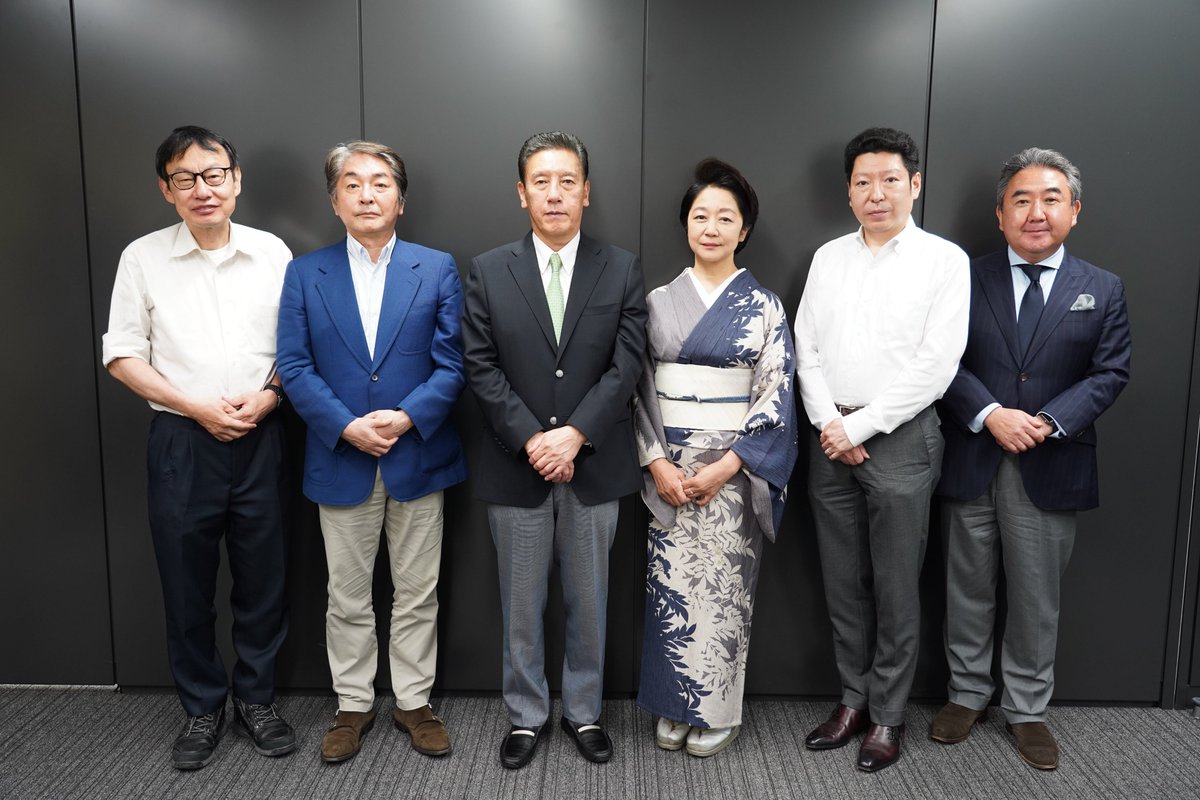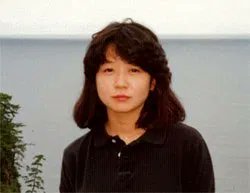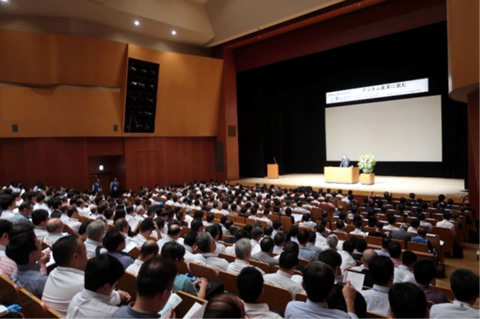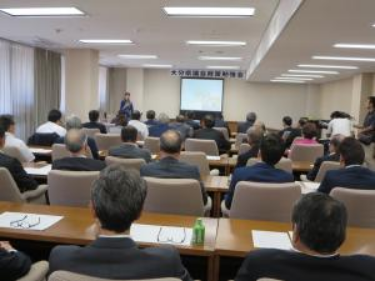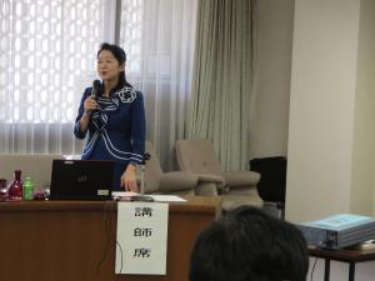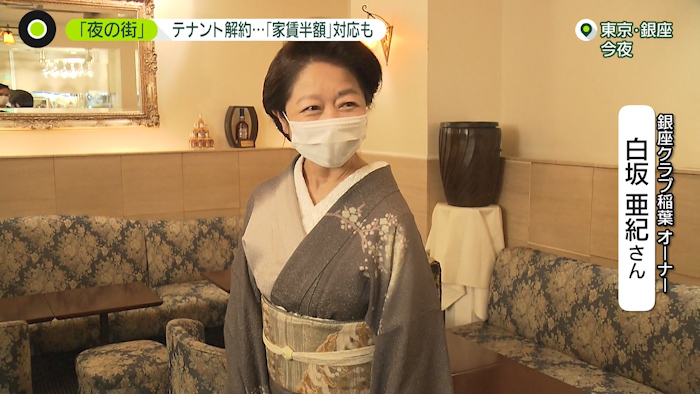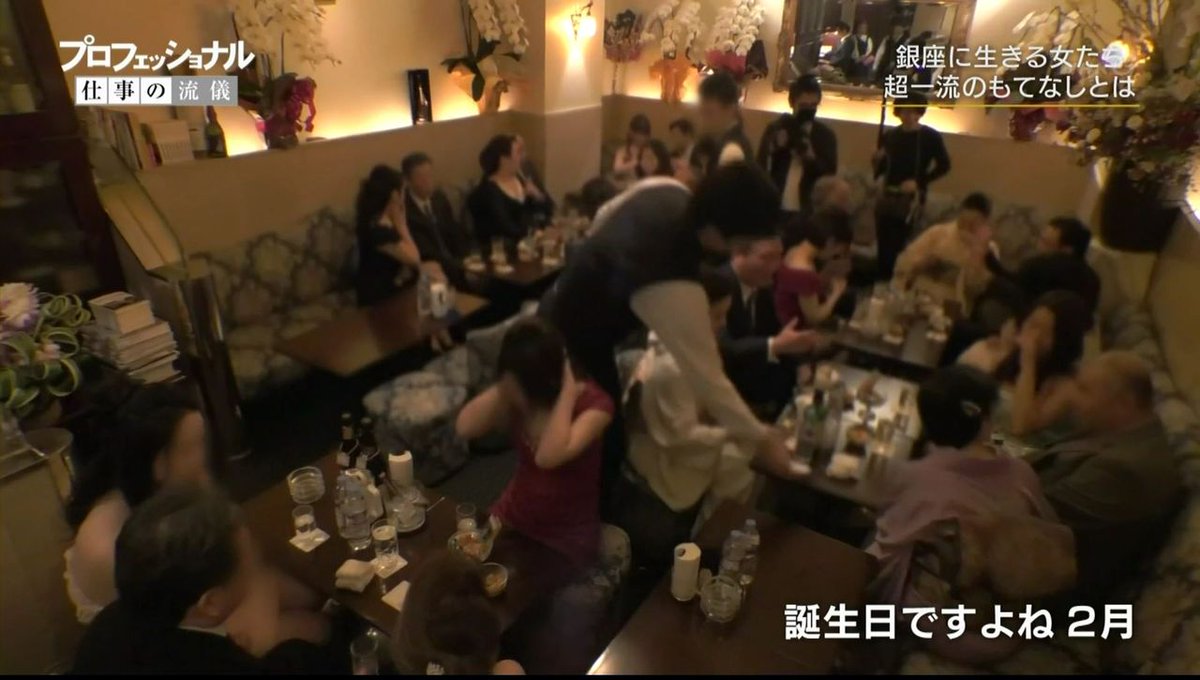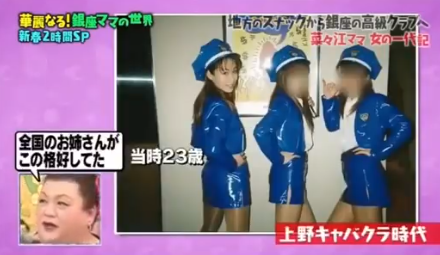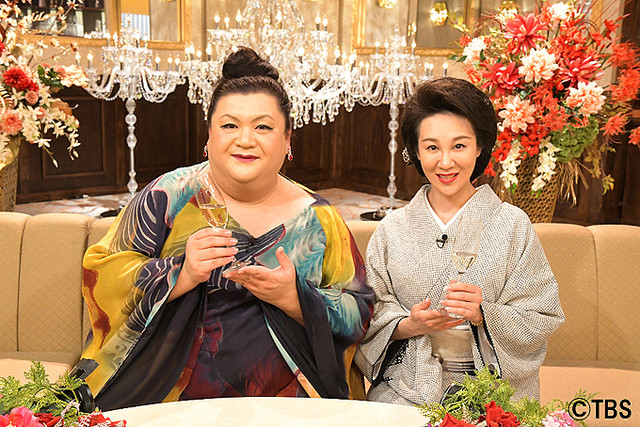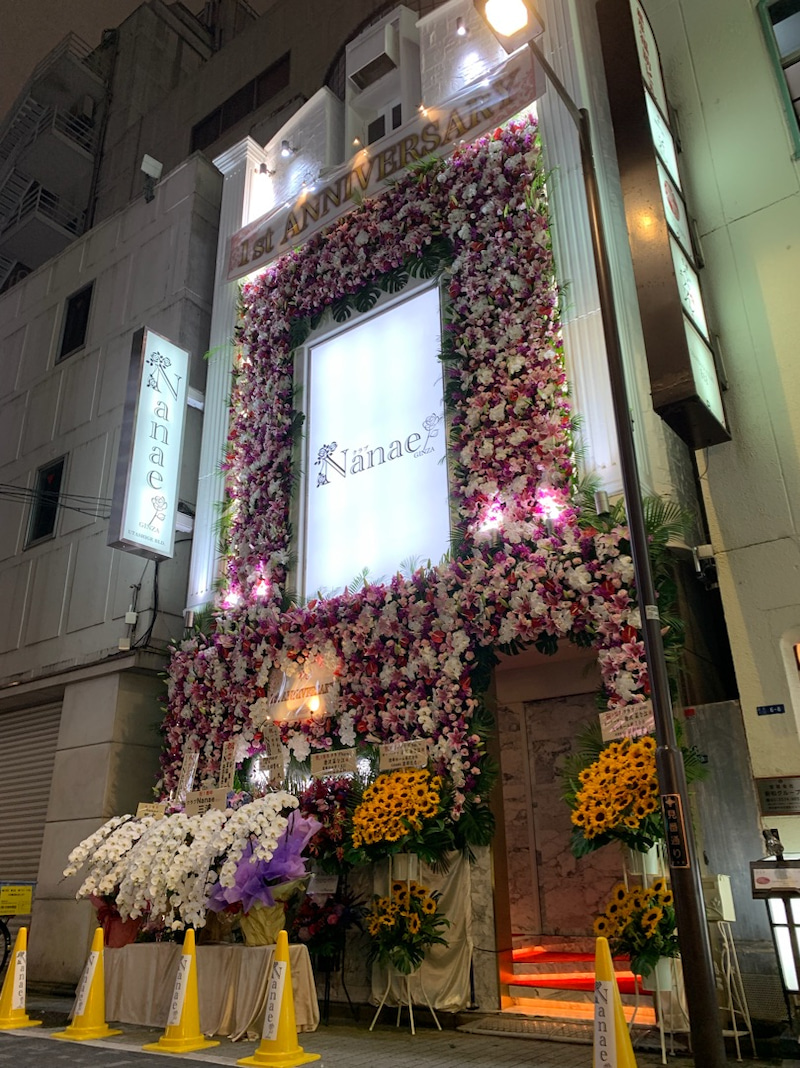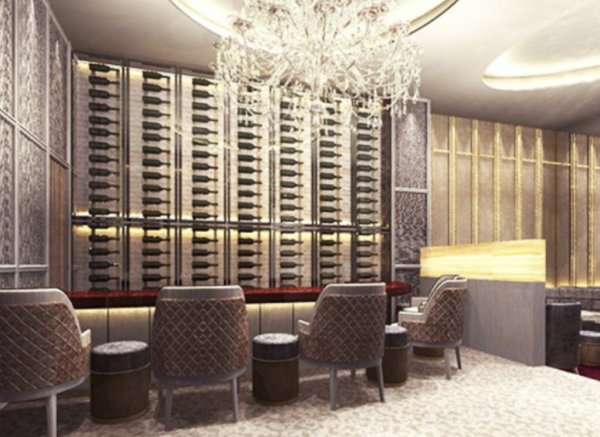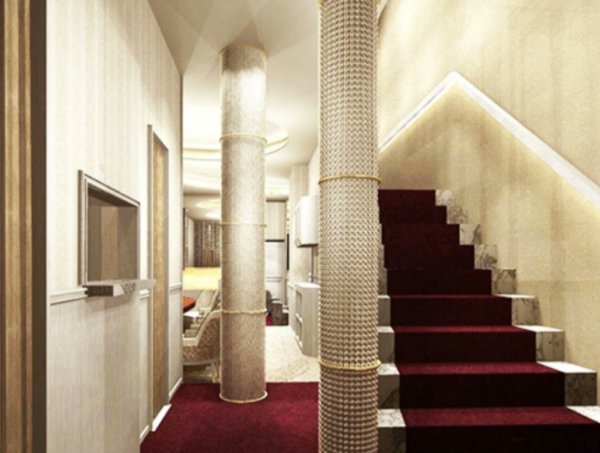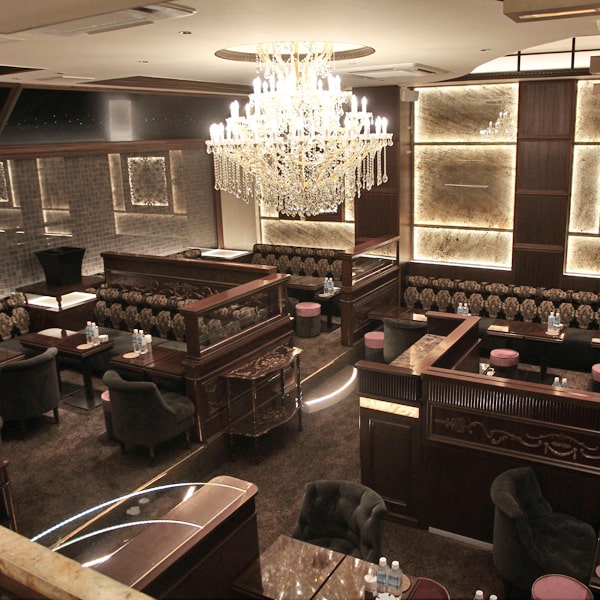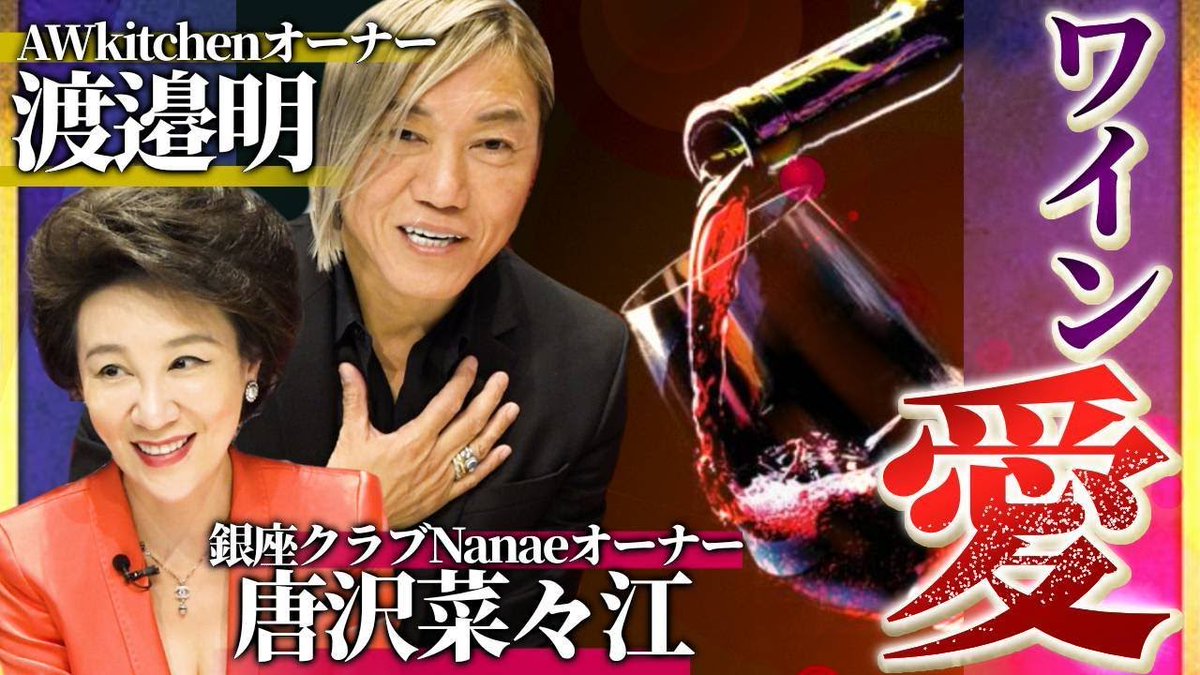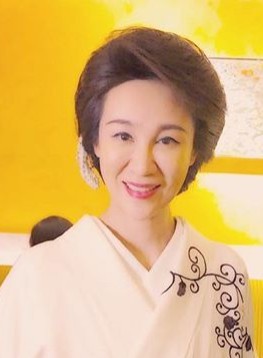Campfire meal ticket scheme for Ginza restaurants is off to a slow start. Nearly a million yen raised so far would be decent for a lot of projects but the target is 20 million. https://camp-fire.jp/projects/view/295313">https://camp-fire.jp/projects/...
The woman in this project line-up is named as Aki Shirasaka, owner of a Ginza restaurant called Honoka. That is part of her business, but she& #39;s far better known as a Ginza club mama.
Shirasaka went up to Waseda University in 1985. One day, a friend said her aunt& #39;s club in Nihombashi needed some girls, and she rounded up a few, including Shirasaka, to go and help out.
It was less common for university students to have mizu shobai jobs back then, and the other girls gave it up. Shirasaka found she was good at the work, and kept going. The bubble era was in full swing, so there were probably rich pickings too.
Shirasaka says she had a period at high school in Kumamoto when she& #39;d fallen in with a bad crowd, before getting back on track to win acceptance for Waseda. She probably wasn& #39;t an ingénue when she started working in Nihombashi.
She started working in 1987, halfway through her Waseda course. Her customers soon became such a big part of the business, she was asked to become the mama-san, and run the place, while she was still a student.
She told her parents she was going to keep working there after graduation. Her mother made an emergency trip from Kumamoto to see the club. That night, a textile firm CEO was in, and her mum decided it couldn& #39;t be that bad if her clients included people of that calibre.
She continued after graduation, and was successful. However, the booze took a physical toll, and she started butting heads with the owner. Shirasaka told her mum she was thinking of giving up.
She says two things changed her mind. The Kobe earthquake made her reassess her priorities, and Hideo Nomo& #39;s success in the MLB convinced her she should aim higher. She decided to go and work in Ginza, the major league of the hostess business.
Her clients followed her to Ginza and, just like Nihombashi, she was soon driving most of the revenue. Shirasaka realized she needed to strike out on her own, so, within a year of going to Ginza, she opened her own club.
Not just one club either. Before she was 30, Shirasaka had two clubs in Ginza. It was such a notable feat for someone her age that, coupled with the fact she was a Waseda grad, she started getting press coverage.
Aki Shirasaka has been in Ginza for 24 years now, and moves in influential circles. Here she is, pictured with Akie Abe.
She added a bar, and a restaurant to her two clubs, and also gives lectures. The first pair of photos show her speaking to the Project Management Association of Japan; the second pair, to members of the Oita local assembly. She appears to have a lecture suit.
Aki Shirasaka, then, is a significant player in Ginza. Only last year, though, she lamented in an interview that customers no longer seemed to know the rules of Ginza. She said regulars used to introduce their clients, or subordinates, and would show them the ropes.
Talking in general about Ginza hostess clubs, rather than just hers, she said some punters has started asking for discounts. Shirasaka thinks such clients should just go somewhere cheaper instead.
Shirasaka is also exasperated by clients who can& #39;t do 同伴(dohan) properly. Dohan is when a hostess meets a client for dinner, then takes him to the club afterwards. This is one of the main ways hostesses make money for the club, and everyone usually has a monthly quota to fill.
The club needs the girls back on duty well before closing time, so the client should make an early restaurant booking, somewhere close. Some book too late, and too far way for Shirasaka& #39;s liking.
In some ways, Shirasaka& #39;s Ginza rules are just the way the clubs have always made their money. Her exasperation is not so much about some Ginza code of conduct, as it is about her customers not acting in ways to maximize her returns.
Of course, sales now are non-existent. In May, Shirasaka told a TV crew that monthly takings across her four joints had fallen from 30 million yen to zero. Meanwhile, rent and basic salaries are running at 5 million yen a month.
Very little about the Ginza hostess club business plan makes sense in a COVID-19 world. Clubs have a variety of clientele, depending on the mamasan& #39;s network of contacts. Some cater a lot to celebrities. Shirasaka seems to have had a large number of businessmen.
Perhaps one reason Ginza noticed old regulars weren& #39;t showing new customers the ropes is that business practices have changed. Expense accounts pay a lot of bills in Ginza, and not all companies are happy to foot the bills any more.
Also, in many walks of life now, customers have to declare the value of gifts or entertainment. This is to guard against solicitation or bribery. Executives soon lose the habit of going to clubs when their clients can& #39;t go any more, and they can& #39;t get the company to pay.
With coronoavirus limiting business contacts, corporate entertainment has all but ground to a halt. Even when it does restart, you wonder whether firms will want their executives hitting the hostess clubs to the same extent, if at all.
Here& #39;s another shot of one of Shirasaka& #39;s clubs. It& #39;s not a lavish affair by Ginza standards. However, the large, glitzy clubs often need more punters, and so can be less exclusive.
In the same TV documentary, she says she sends out 24,000 New Year& #39;s Cards. That& #39;s going to include a lot more than direct clientele but gives you an idea of the kind of network Shirasaka tries to maintain.
One interesting aspect of the exclsive world of private Ginza clubs, is how open to publicity some of the main figures seem to be. Shirasaka had a blog for a while. Other Ginza mamas have active instagram and YouTube accounts.
Here& #39;s a clip from Nanae Karasawa& #39;s YouTube account, showing a team sterilizing her club. She says the coating is guaranteed for a year, so I suppose you can lick the wall whenever you fancy. Shame if there& #39;s an infected person talking in your face. https://www.youtube.com/watch?v=DCkcMDDQKT8">https://www.youtube.com/watch...
Karasawa is an interesting contrast to Shirasaka. She& #39;s around 10 years younger, and her background is very different. The bubble burst when she was still a teenager. She started off in an out-of-town snakku, married a ne& #39;er-do-well, and had to keep earning to pay his debts.
She gave birth to a baby boy, and, shortly afterwards, was working in a mini skirt police club in Ueno
Karasawa was spotted in Ueno, and invited to work in Ginza, which is where she started her upmarket hostess career, probably just a few years after Shirasaka had opened her clubs. When Matsuko Deluxe did a show on how Ginza had changed over time, Karasawa was her main guest.
Karasawa explained how Ginza clubs were often hard to find for those not in the know. You almost needed a secret handshake and a hidden elevator to get there. She took a different approach.
Karasawa says it cost 500 million yen to fit out Nanae. Rather than executive salarymen looking for discretion, she seems to be pitching more at self-made men, looking for validation. One of her clients is Akira Watanabe, the man behind restaurant chain AW Kitchen.

 Read on Twitter
Read on Twitter